Cet article est également disponible en: Catalan
Walking in the Pyrenees is fun. But ask yourself, would you want to live there all year round?
From May to October, the lush pastures on the lower slopes are complemented by the rocky saw-tooth heights. Walking can be a challenge, but the reward is at the summit, vistas of blue-grey ridges stretching to the horizon. Those blisters are forgotten.
Of course, this is the perspective of a holidaymaker, seen through rose-tinted sunglasses. But why would anyone want to live in the Pyrenees all year round?
In winter the skies are often grey, the temperature hardly rises above zero. Apart from skiers safely cocooned on artificial slopes, virtually nobody explores the summits.
But, for locals life is not a holiday. They must work, and most work is seasonal. Many hotels, restaurants and bars close after September and only open briefly when there is enough snow for skiing. If you work in tourism, you must up sticks, or live a frugal existence.
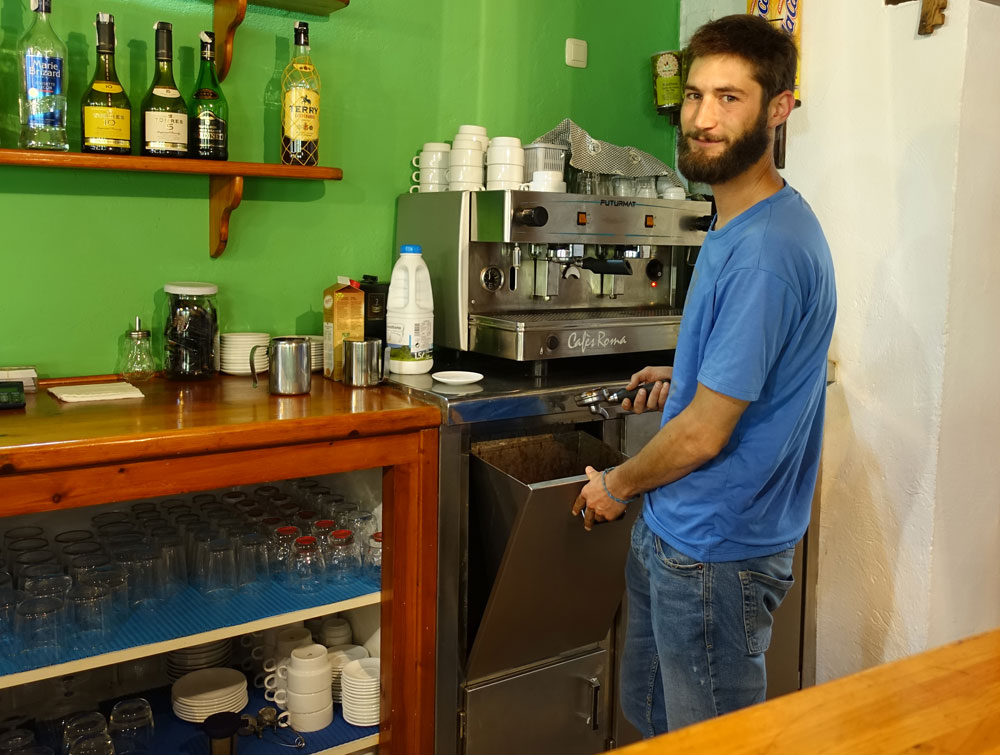
Omar was brought up in the Pyrenees but went away to university. He returned to work in a bar in summer and on ski resorts in winter. His plan is to facilitate access to the mountains for people with special needs.
In winter, farmers struggle too. The mountains are not designed for ploughing; livestock must be kept indoors through many of the long winter months.
Most villages don’t have a shop or a school. Hospital? University? Forget it.

Many farmers have a second source of income: Philippe (pictured here with a statue of a cow) runs a restaurant with the help of his family. “I went to Bolivia. I spent two years there. I loved it… both for the mountains and—especially—working with the Quechua Indian communities.”
So, apart from those who were born there and are used to it, why would anyone want to live there all year round? There are even some people who have left to live more comfortably on the plain but have later come back. Why?
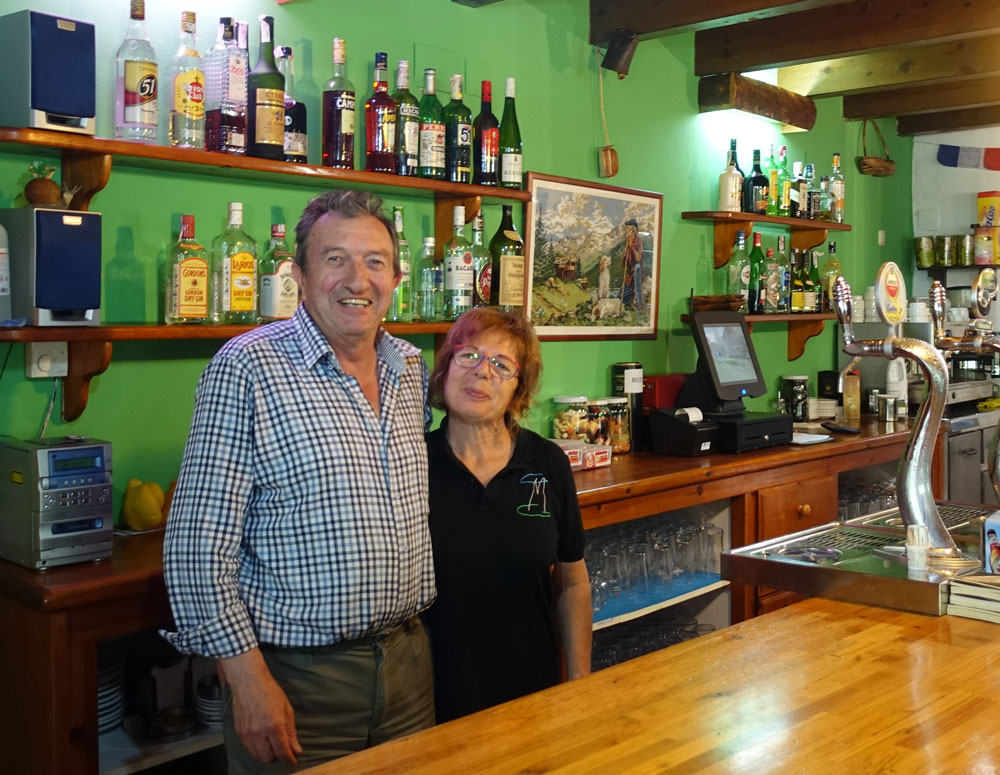
Salva left Pallars Sobirà to work in a nuclear power station where he met Àngels. They now run a restaurant/bar where Salva’s parents had a farm. “I was from here but had never lived here as an adult,” says Salva.
I have been asking myself this question for some time. I visit the Pyrenees frequently but live on the plain, near the Mediterranean. Winters are mild. The sky is blue. I experience the Pyrenees as a tourist, I go to the Pyrenees to play. Now I want to know what makes the Pyrenees work.
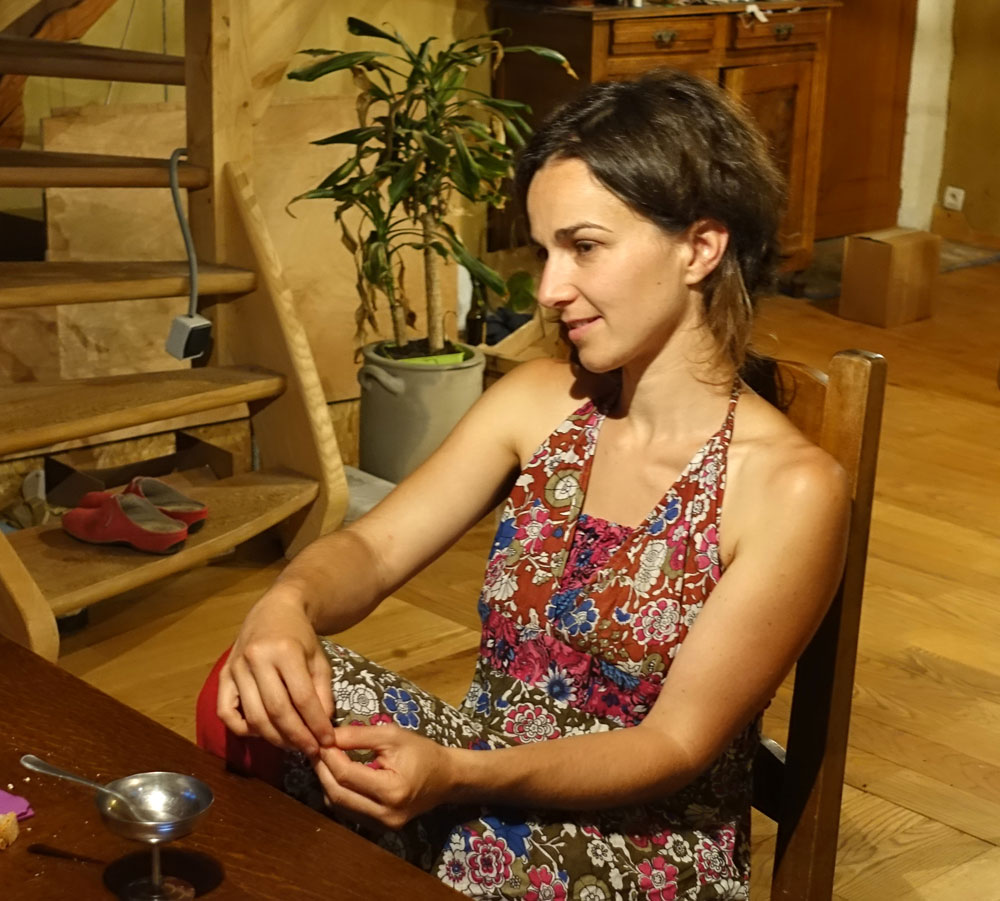
Adeline runs a walkers’ hostel and market garden in Ariège. “I decided to resign from teaching. It was a bit like jumping off a cliff because I knew it would be difficult to earn my living.”
So, I joined up with Open University Emeritus Professor Gordon Wilson to ask people who live in the Pyrenees why on earth they do it.
The answers are as varied as the people we interviewed, but yes, there is a pattern. For those who want to know more about life in the Pyrenees, for those who think the Pyrenees might be for them, we have analysed the kind of person you need to be to make a living ‘up there’.

Mustà and his assistant examining a dead sheep. Mustà comes from a farm in the Atlas Mountains in Morocco, so he was well prepared. Even so, there were new challenges: “The bear was eating a sheep fifty metres away. Well, I shut the tent up and that was it. I just let him eat it.”
We interviewed fifteen people. Some had lived in the Pyrenees all their lives (natives), others had been away and come back (returnees), and some had moved to the hills having previously lived elsewhere (incomers). They talked about themselves and their families; over half were couples with one partner from the mountains and another from down below.

Pepo comes from Barcelona. He runs an adventure sport company based in Pallars Sobirà. “We will never be ‘born and bred’ here, but my kids really are ‘born and bred’… I’ve lived here longer than in Barcelona and I feel that I am from Surri though I wasn’t born here.”
The result of the interviews is Mountain People, Tales from the Pyrenees, published by Austin Macauley.
In it, our witnesses talk about the obstacles and the steps they take to overcome them. Most of them have not given in to fate. They are not just hoping for a better life but are actively working to achieve it in the context of the mountains. And most of all, they identify with their chosen abode.

Josep, native, and Maria, incomer, with their children. Josep works for the council; Maria has horses and runs a B&B. “I like hunting. I like it a lot. Wild boar,” says Josep.



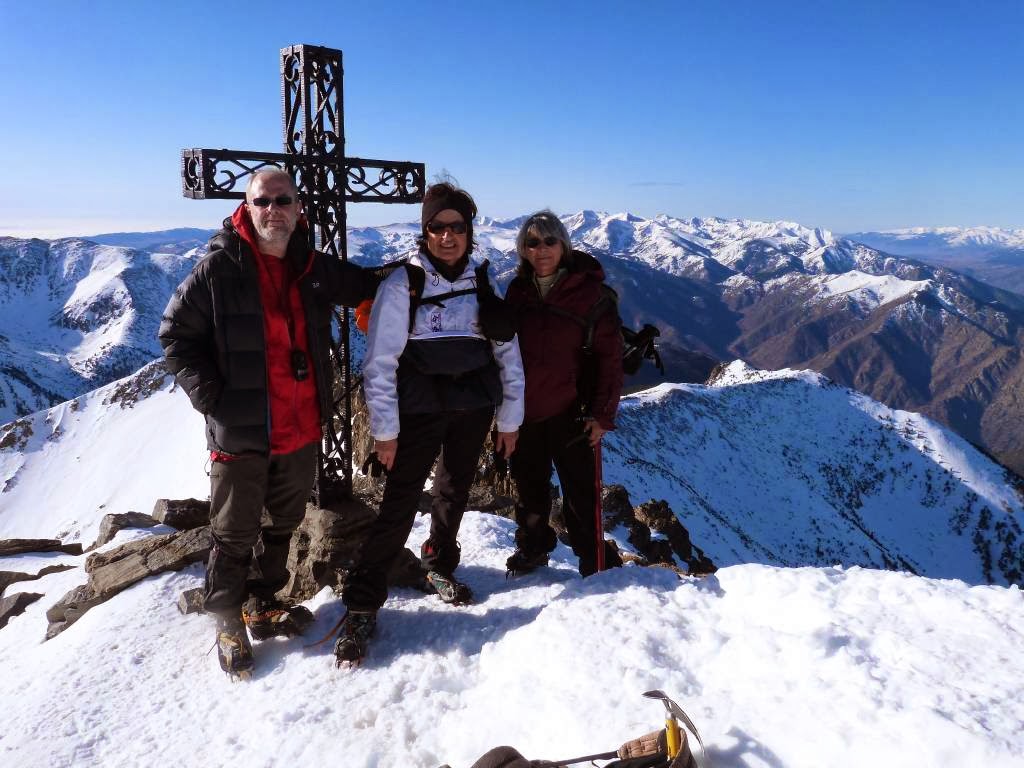
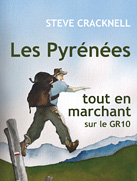
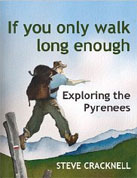
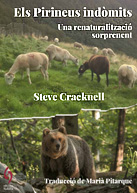




Footprints on the mountains